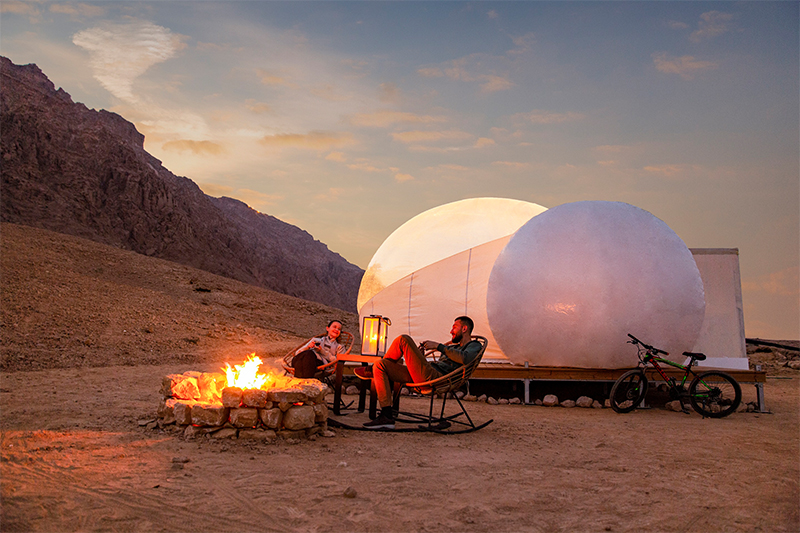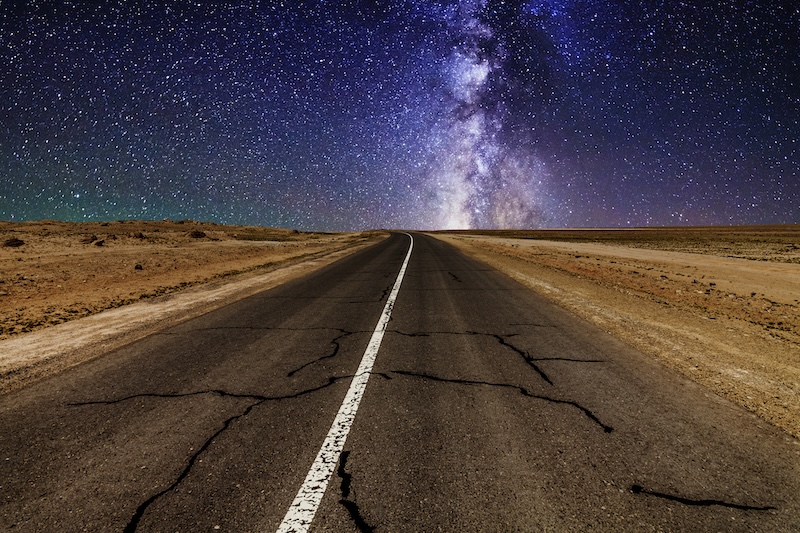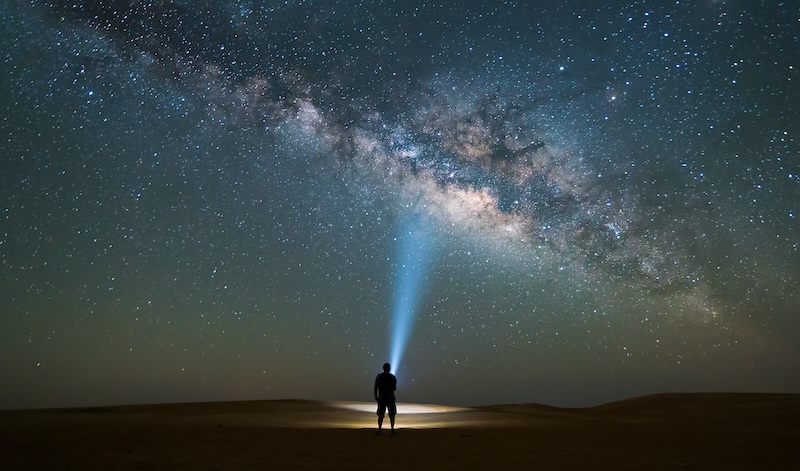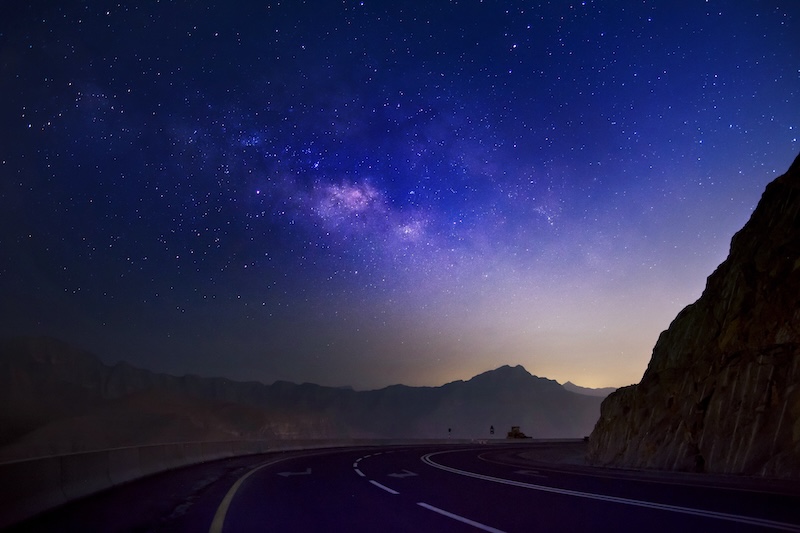This stunning meteor shower will light up UAE skies this week
The peak of the shower will fall on Monday and Tuesday…
Fireworks are great, and you can always count on the UAE to put on a good drone show – but can anything really beat watching the cosmos cook?
This week we’ll get the chance to see one of its best annual shows. The September Epsilon Perseids Meteor Shower takes place between September 5 and September 21 – with the peak of that celestial pyro rain falling on September 9 (Monday) and 10 (Tuesday). Because moon illumination is around 35 per cent, and the cloud cover is scant – the atmospheric conditions are ripe for a bit of keen-eyed Perseid perusing.
During this period, you can expect to see up to eight meteors per hour, streaking across the sky with their iridescent tails peacocking across a wide spectrum of chemically-cordinated colours.
What are the September Epsilon Perseids Meteors?
The space rocks get their name from the star closest to the direction they appear to be approaching earth from, Epsilon Persei. But don’t worry – there’s absolutely no need to fire up the Armageddon shuttle, these meteors are typically about the size of a grain of sand, burning up as they hit earths atmosphere at around 64 km/s.
Who’s your space daddy?
Unlike the August Perseids, which are made up of fragments from the Swift-Tuttle comet, the origins of the September Perseids are less clear. They’re likely the offshoots of a large, currently unknown long-period comet.
But where can you watch the September Epsilon Perseids Meteors?
Check out our full and comprehensive guide to stargazing in the UAE for the full lowdown and sky-spectating kit essentials.
Roadmap to the stars: The best locations for seeing stars in the UAE
Jebel Hafit Desert Park

One way to give yourself a little leg up in the stargazing stakes is to get as much altitude as possible. Jebel Hafit is Abu Dhabi’s tallest peak, and although it’s only fractionally closer to the twinkling marbles overhead – its rocky pedestal takes you above the denser atmosphere, beyond the fog and the haze, giving you a more HD experience for the celestial show. It’s a bit of a drive from the UAE’s big cities (around two and a half hours from Dubai, and two hours from Abu Dhabi), but the great thing about this destination is that there’s a Pura Eco glamping resort offering a range of tented and lodge accommodation (priced from Dhs450). There are also pitches for DIY camping priced from Dhs150.
Al Quaa Milky Way Spot

The sort of place you’d expect to visit when an astrophysicist says “I know a spot”. This stellar Abu Dhabi nook is about as-remote-a-sky-staring snug as you’ll find in the UAE, and its precise GPS digits used to be a closely gatekept secret. But amateur astronomers are a progressive bunch – maybe all that cosmic pondering gives them an innate reverence for transcending the self, perhaps it’s a contagious case of the space crazies – whatever the reason, the location is now easily Google-able online and there’s even a casual camping hub that’s sprung up near by. It’s about two and a half hours from Dubai, and 90 minutes from Abu Dhabi city, requires an SUV for ingress, and as the name suggests, can provide some galactically good long exposure photo ops of our native star cluster’s stunning spiral arm.
Al Qudra

What is undoubtedly one of the best-known stargazing locations in the UAE, Al Qudra is easily reachable from Dubai. Which, because of light pollution, is also its main detraction. The best advice is to head a little further out, beyond the lakes and along the cycle track – to a more remote spot, shy of headlights and hubbub. Because of luminosity levels – a telescope may be your best option here, you can find inexpensive ones online that will allow you at least a ‘lite’ version of the James Webb experience.
Wadi Shawka

Another great locale for watching the heavens cook, this Ras Al Khaimah gem’s natural wadiscape brings all the hikers to its yard. It’s conveniently located for Dubai’s star-struck up-lookers, at less than an hour’s drive from the metropolis’ Downtown. Star pupils make sure they arrive in daylight hours to scope out a suitable camping spot, and make the most of the clean mountain air. If you’re feeling adventurous there are lakes in them there Shawka Trail hills, and a kids’ play area (with barbecue pits) near the dam.
Images: Getty/Unsplash
